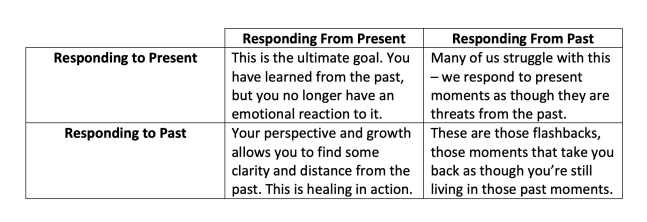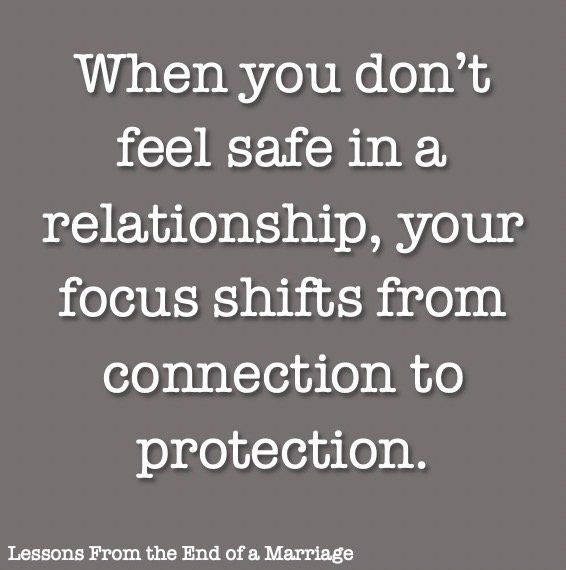Restoration after a sudden trauma is not easy, but it is possible. In fact, you can even learn how to surf your tsunami, moving through it with skill and grace.
Many of us will face a personal tsunami at some point in our lives. We will be felled by a great wave bringing with it sudden change and loss. Perhaps your tsunami is in the form of the death of a loved one, maybe it is the loss of a job or a way of life or possibly you have lost the health you took for granted. My own tsunami was in the form of an unexpected divorce after being abandoned via a text message.
Regardless of the nature of your abrupt trauma, tsunamis have some common characteristics. By their nature, tsunamis are difficult to predict and even harder to prepare for. You have to face the realization that you cannot control your surroundings. The world that you knew is gone, swept away in a single move. You feel disoriented as you try to navigate this new realm.
Soon after the trauma, it feels like it will be impossible to rebuild. The odds seem insurmountable. The shock and grief permeate everything and make every move a struggle. Restoration after a sudden trauma is not easy, but it is possible. In fact, you can even learn how to surf your tsunami, moving through it with skill and grace.
The following are my healing tips for anyone who has been flattened by a tsunami.
Breathe
The blow of sudden trauma is physical. The body tenses as if anticipating another blow. The breath is the first to suffer; it becomes shallow and rapid behind a breast wrapped tight in a straightjacket of sorrow. Release it. It won’t be easy and it won’t be automatic, at least in the beginning. Set a reminder on your phone or computer to take several deep breaths at least once an hour. As long as the body is anticipating another blow, the mind will be as well. Sometimes it’s easier to train the body and allow the mind to follow.
Recognize the Moment
Understand that the way you feel right now is the way you feel right now. It is not how you will feel next year. It is not how you will feel tomorrow. In fact, it’s not even how you will feel in five minutes. Everything changes, including suffering. Just the realization that the current feeling is temporary makes it a little easier not to panic and feel as though you are drowning.
Goals
You are in the midst of change you did not ask for and did not want; however, that does not mean that you should simply throw yourself to the mercy of the sea. Take some time to think about what you want in your life. Formulate some goals — long-term or short-term, easy or next-to-impossible. It doesn’t matter; you can always change them. For now, it’s important simply to write them down and post them as a motivator during those difficult moments.
Mentors
After a tsunami, it is so easy to feel alone. It is tempting to curl up and hide in an attempt to protect yourself from further harm. You are not alone. There are others who can relate. Others who have been where you are and have rebuilt. Others who can extend a hand and help you find your way. These mentors may be in your life already or they may take the form of a counselor or pastor or even a group online. Accept their help — a difficult task is always made easier with assistance.
Patience
It’s hard to accept that everything can be destroyed in a blink yet it can take a lifetime to rebuild. Healing cannot be forced. It is not a task suited to lowering one’s head and barreling through. Healing is not linear. A bad day may follow a good one. Be gently persistent with yourself. Keep in mind where you want to be, but accept where you are.
Balm Squad
Assemble your balm squad — people and things that soothe you and bring you comfort. Fill your space with items that bring a sense of peace or joy. Take the time to visit places that make you feel good. Most importantly, seek out others that support you and encourage you. They are your best balm of all.
Restoration vs. Recreation
It’s easy to slip into the dangerous waters of “what if,” replaying the past and trying to find an alternate action that would have averted the tsunami. It’s easy but it’s also a dangerous game. What you had is gone. Healing has to begin with that understanding. Rather than try to recreate what was, focus on restoring a life. Just because it is different does not mean that it cannot be as good. Or even better!
Nourishment
Take care of yourself. Nourish your body with healthy foods and exercise. Make sure you’re sleeping. Nourish your mind with loving thoughts. Don’t be ashamed to ask a doctor for help if you need it. Medications can help to reset eating, sleeping and thought patterns when we cannot yet do it for ourselves. Your basic needs must be met before you will be able to work on healing.
Mindful Escape
When you are facing sudden trauma, it is easy to try to run away and escape your painful reality. You may seek oblivion in alcohol, video games, gambling, dating or media. You will need a break sometimes; it is okay to submerge yourself in distractions occasionally. However, be sure that you escape mindfully. Be present and aware so that you do not allow the distraction to become a habit because when you are in a weakened state, those habits have a way of consuming you.
Spin Doctor
Your trauma has a story, a tale that you most likely have spun again and again with you as the victim of the tsunami. Look at yourself as your own publicist, a spin doctor of your story. How can you rewrite your tragedy so that it is not all suffering? What can you be thankful for? What have you gained as a result of your loss? It will feel strange and even traitorous to find gratitude within your loss, but it can help you move beyond the pain.
Release
Find your outlets for release and restoration. Maybe you feel restored by playing with a baby or dog. Or, perhaps you are called to take a long walk in the fading sun. Maybe it’s a favorite yoga class or a certain sitcom that liberates you from the pain. You can never have too many avenues that provide freedom from the suffering; collect these outlets and apply them generously.
Don’t Wait
Healing from a tsunami is a difficult path. Don’t wait to live until you are healed; it is okay to find happiness along the way.
The trick to surfing a tsunami is not in trying to control the wave but in learning to how to flow through it.







